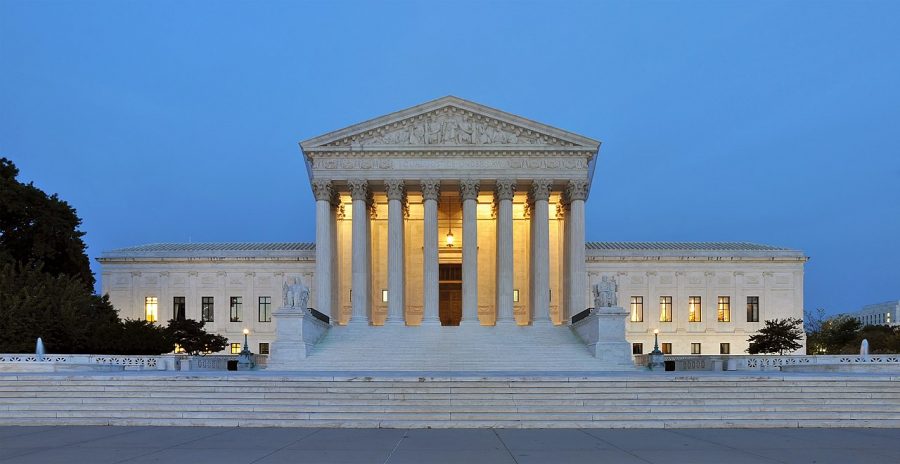Rowland: Why the death penalty should be banned
By Joe Ravi, CC BY-SA 3.0, https://commons.wikimedia.org/w/index.php?curid=16959908
September 12, 2019
It is a universal truth that death is a terrible, heinous thing that should be avoided at all costs. Surprisingly, Mississippi and many other states still use capital punishment as retribution for murder. The morality of the death penalty is extremely questionable, and the facts supporting its effectiveness are sparse.
The ethics behind the death penalty are deeply hypocritical. It models the exact behavior that it is aiming to prevent, consequently setting a negative precedent. It depends upon the ideology of an “eye for an eye” or answering violence with violence. Death is death. No one deserves to die, not even murderers. Most developed nations do not employ the death penalty; its philosophy is inherently paradoxical and its implementation renders no positive effects. Our government should not be able to devalue human life based on crime. The role of the government is to protect individual rights and work for the greater good of the people.
Some might argue that the looming threat of death row will decrease the amount of crimes (specifically murders) committed, and it is consequently needed as a deterrent. However, statistical evidence disagrees. The death penalty has not been proven to have a significant effect on crime. States that have made the death penalty illegal do not have higher crime or murder rates and states that have made the death penalty legal do not have lower crime or murder rates. Clearly, capital punishment accomplishes nothing other than taking away a human life.
The feasible alternative to the death penalty is simple: life without parole. Murder is the worst crime one could commit and is never, ever justifiable. Murderers deserve to be punished with the utmost severeness. The option of life without parole as a punishment is the most ethical and practical punishment. Life without parole is, simply put, a sentence of death in prison. This is much more humane. The death penalty actually costs more than life in prison. The government spends more money to kill someone than they would had they incarcerated them indefinitely. Drawn out trials equal a costly judicial process. Banning the death penalty would not only reduce government spendings, but it would positively change the culture of our judicial system.
Another negative aspect of the death penalty is that the wrong person might be killed. An estimated 4.1 percent of death row inmates are innocent. This means that the government has the ability to take the life of a wrongly convicted citizen. Our justice system is run by humans, which means that it is fundamentally prone to error. The prospect of death being forced upon a person, especially an innocent one, should not be a reality in a modern, developed country.
Criminals and their families are not the only citizens affected by capital punishment. The psychological effect of sentencing someone to death is apparent in jurors, judges, and executioners. No citizen should be tasked with deciding the fate of someone’s mortality. The completely unnecessary mental toll that is forced upon those in the process is unparalleled in any other type of judicial proceeding. In fact, a large percentage of jurors seek counseling after capital trials. The consequences of the death penalty are only negative, and the consequences of the alternative, parole for life, are only positive.
I advocate for the death penalty being wholly eliminated. Death should not be inflicted under any circumstances, regardless of the crime. We live in a civilized, modern society, and I feel that our justice system should adequately reflect that. If you want to reach out to a Mississippi representative and voice your opinion on the issue of the death penalty, visit www.legislature.ms.gov to find the contact information.









